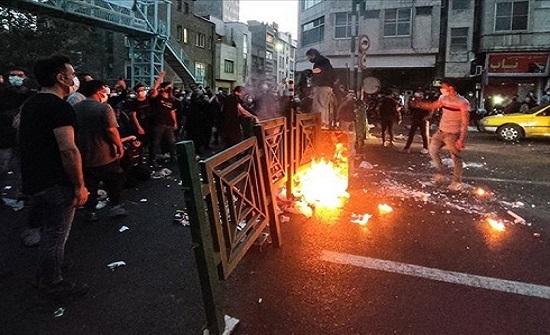Al-Madina News: To stop calls for protests against the death of the young woman, Mahsa Amini, the Iranian government has disabled the popular game “Clash of Clans” due to the chat feature for teenagers.
According to a BBC article, the majority of protesters in Iran are from the Amini girl generation, a tech-savvy demographic that frequently uses social media and other applications.
Instagram and WhatsApp were restricted by Iranian authorities on September 22; Twitter, YouTube, and Facebook applications have already been blocked since 2009.
Additionally, the “BBC” cited “reports that suggested that the Iranian authorities are go farther and have already begun employing a facial recognition system to detain demonstrators.
The Iranian government “plans to employ facial recognition technology on public transit to identify women who do not abide by the tight hijab requirement,” according to a story in the Guardian newspaper on September 5.
And in 2018, the Tehran police unveiled a facial recognition system that allows for the identification and analysis of people’s faces, sparking discussion concerning the technology.
The facial recognition technology was “ready to use,” according to Tehran’s traffic police chief Kamal Hadianfar, during the Corona crisis of 2020. He also claimed that the device’s design goal was to allow for the imposition of fines on disobedient pedestrians.
The police will utilise traffic cameras outfitted with facial recognition technologies to identify and punish anyone who don’t wear face masks on the streets, according to deputy health minister Alireza Raisi, who stated this will happen in the fall of 2020.
And in August of last year, Muhammad Salih Hashemi Kalpayakani, the Secretary-General of the Directorate of Enjoining Good and Forbidding Evil’s headquarters, proposed using facial recognition technology to put into practise the so-called “chastity and hijab plan,” which entails confirming that women are fully covered in public places.
Its use was questioned, particularly in public spaces like metro stations, and the advertisement sparked discussion on social media, as noted in the Guardian piece.
Arabic21.
Iran disables a well-known video game to discourage demonstration crowds

